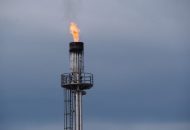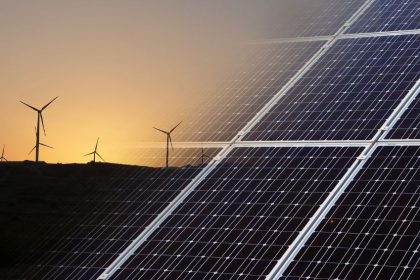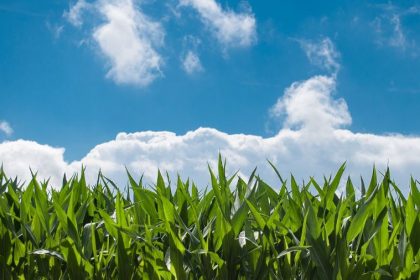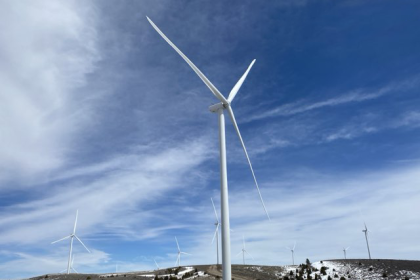Firm Breaks Ground, First Plant in Maine to Make Natural Gas From Manure
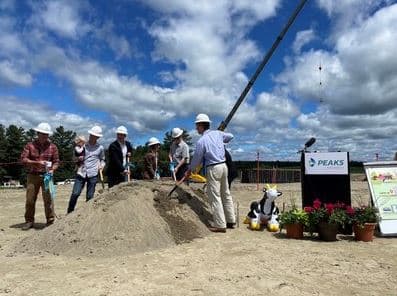
CLINTON, Maine — A subsidiary of Summit Utilities in Maine has broken ground on an anaerobic dairy digester that it says will turn daily shipments of cow manure from area dairies into a biogas that can then be used to warm homes and fuel industry.
“It truly was an exciting day for Peaks [Renewables], Summit and the state of Maine,” said Kurt Adams, Summit’s president and CEO of the July 6 groundbreaking event.
“Since announcing our intent to build the anaerobic dairy digester, our teams have worked tirelessly to make it come to life,” he continued.
“I am thrilled that we’ve been able to invest our resources to create green, renewable jobs right here in Maine, and appreciative of the incredible support for the project we’ve received from the state, local community and farming industry,” Adams added.
First announced in 2019, the goal of the project is to support the local economy and family farms while also reducing emissions by creating home-grown renewable natural gas.
Renewable natural gas, called RNG for short and also known as biomethane, is typically derived from the decomposition of naturally occurring organic waste from landfills, waste treatment plants, industrial sites and farms.
Unless captured and reused, much of the emissions created from the organic waste at these facilities would be released into the atmosphere in the form of methane — one of the most potent greenhouse gases.
Summit and a subsidiary, Peaks Renewables, are working with six local farms: Flood Brothers, Gold Top, Somerset, Wright Place, Taylor Dairy and Heifer Haven to gather feedstock for the project.
Once in the digester, the manure will be heated and decomposed, creating a biogas that will then be cleaned to “pipeline quality.”
The gas itself will be purchased by Summit, and used to provide reliable gas service to its thousands of customers throughout the state.
In addition, Summit and Peaks Renewables plan to sell renewable energy credits to third parties who need them for their own decarbonization requirements.
“This groundbreaking is a historic step forward for Summit, Peaks and all of our project stakeholders,” said Angus King, president of Peaks and chief strategy officer for Summit.
“Renewable fuels like RNG have a critical role to play in reducing emissions and transitioning to a low-carbon future. We created Peaks to drive innovation within Summit, and it has opened the door for the company to be a leader in the development of zero-carbon fuels and drive innovation in the energy sector. For that, I am truly grateful,” he said.
Summit and Peaks Renewables estimate that the facility will avoid emissions equating to 28,000 metric tons of carbon dioxide equivalent. That’s the equivalent of taking 6,500 cars off the road for every year it operates.
In addition to generating pipeline-quality, carbon-negative renewable natural gas, the facility will also produce animal bedding and fertilizer that will be returned to the local dairy farms participating in the project to use in their daily operations.
“Maine is the most heating-oil dependent state in the country, with more than 60% of households reliant on oil to heat their homes in the winter months,” said Dan Burgess, director of the Maine Governor’s Energy Office.
“This project has the potential to move Maine towards greater energy independence while reducing emissions and providing additional support for Maine’s dairy farmers. This effort is a promising example of the creativity, innovation, and collaboration present across Maine that will help the state achieve its clean energy and climate targets,” he said.
Rep. Jared Golden, D-Maine, said the project will “create a clean energy source our state can be proud of.
“This facility will help dairy farmers achieve greater efficiency and will deliver clean energy to homes and businesses in Maine, further proof that rural Maine can be a leader when it comes to energy innovation,” Golden said.
But perhaps the most meaningful testimonial came from Jenni Tilton-Flood, of Flood Brothers Farm.
“For family farms like ours, the challenges of navigating the dairy industry in the 21st century while balancing the challenges of climate change mean finding new and sustainable ways to protect our land for future generations, care for our animals, and produce fresh, quality milk for our neighbors,” she said.
“This project is very important to our family and the future viability of our farm. Having the opportunity to collaborate with Peaks Renewables and other Maine farms to create renewable natural gas from the resources on our farm makes it possible for us to honor our commitment to care, concern, and community and enhance our sustainability efforts,” she said.
Dan can be reached at [email protected] and @DanMcCue












